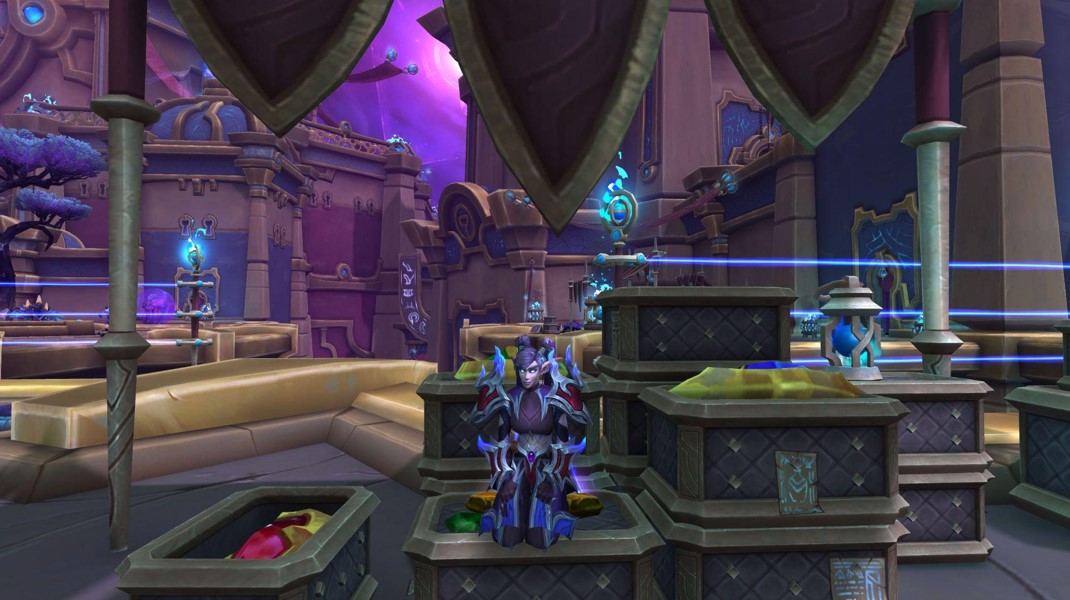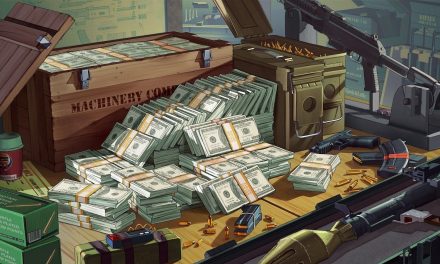From training your first skills to endgame raiding, gold fuels everything in Classic WoW. Here’s a simple breakdown of the main ways to make WoW Classic gold and keep your pockets full on any level.
Making Gold in the Early Levels
The best thing you can do on early levels is simply stick to questing. Early on, quests will mostly give you copper, but with the game’s exchange rate of 100 copper = 1 silver and 100 silver = 1 gold, all those small coins will eventually add up to gold even before you start getting actual gold rewards from quests.
While you’re out questing, you’ll also be killing lots of creatures that drop all sorts of items you can sell to vendors for extra coins. Quest rewards can be vendored as well. At first, it’s fine to vendor pretty much every white and gray item you don’t need. Once you start picking up green or higher gear, you’ll need to be more careful, as some of these items can be pretty valuable and are better off sold on the Auction House. So, as a rule of thumb:
● When you get a green item, always check its Auction House price before vendoring.
● Don’t vendor blue and purple items. They are worth keeping or selling on the Auction House.
Professions
Professions are a huge part of Classic’s economy: they let you craft gear, consumables, and other useful items or simply gather raw resources and sell them for profit.
Best Gold-Making Professions
If you’re just starting out, gathering professions are usually the best choice. They’re simple, easy to level, and don’t require much investment. You just collect resources and either sell them directly or use them later for crafting.
Skinning is probably the chillest way to make money, especially while leveling, as you’ll be able to earn gold by skinning the beasts you kill. Herbalism is also a good choice: herbs are needed for potions, flasks, and other consumables made with Alchemy, so you’ll always have steady sales. Mining works the same way for Blacksmithing and Engineering, with ore, bars, and stones always being in demand with crafters.
The dual gathering combo (Herbalism + Mining) is one of the easiest setups for new players. If you want to mix things up, try Herbalism + Alchemy or Mining + Blacksmithing/Engineering to farm your own mats and turn them into crafts to sell.
Secondary Professions
Unlike primary professions, where you’re limited to just two per character, you can learn all three secondaries (Cooking, Fishing, and First Aid) at the same time. They’re very easy and cheap to level and can absolutely help you make nice extra gold or at least save money on crafting reagents.
The Cooking + Fishing duo offers a steady supply of ingredients for alchemists, plus plenty of food buffs that always sell well. First Aid produces bandages that you can use yourself or sell to other players who are too lazy to craft their own.
Farming
Farming refers to repeatedly killing mobs and gathering their loot to later sell on the Auction House.
Here are some of the most profitable open-world farms in Classic:
● Felwood (drops include Felcloth, Runecloth, Essence of Water, and Living Essence).
● Tanaris (Golden Pearls)
● Un’Goro Crater (Elemental Fire, Essence of Fire, and Heart of Fire)
● Silithus (Elemental Earth, Essence of Earth, Encrypted Twilight Texts)
● Blasted Lands (Vulture Gizzard, Snickerfang Jowl, Scorpok Pincer, Blasted Boar Lung, and Basilisk Brain)
● Winterspring (Winterfall Firewater, Mature Blue Dragon Sinew, The Eye of Shadow)
Dungeon farming works much like open-world farming, except you’re killing mobs in instances instead of zones. While completing a dungeon will give you more rewards, you don’t always need to do a full clear, as many profitable farms only target specific mobs in certain spots (e.g., Whip Lashers in Dire Maul East or Zul’Farrak Graveyard farm).
To make your gold-making sessions more efficient, you should combine farming with leveling and gathering to gain XP and earn gold from various sources at the same time.
Best Classes for Farming
Certain classes have clear advantages when it comes to farming. If you’re still deciding what to play or want an alt purely for gold-making, here are some of the best options to consider:
● Mages are great for gold-making thanks to their powerful AoE abilities. They can pull large packs of mobs and farm really fast, plus you can make extra gold by selling portals and food/water conjures to other players.
● Druids are super mobile and fast with their instant travel forms. They are great for gathering professions since you can gather while shapeshifted and move really quickly between nodes.
● Hunters and Warlocks are strong solo farmers with tanky pets and good sustain for long farming sessions.
Auction House
No matter what you farm or what professions you have, at the end of the day, most of your profit will come from selling items on the Auction House (AH).
If you’ve never used it before, here’s a quick crash course on how the AH works:
● You put an item (or a stack of items) up for sale for a set number of hours with two prices: a bid price and a buyout price.
● Bid price is the minimum amount players can start bidding from. At the end of the auction, the highest bidder gets the item.
● Buyout price is the instant purchase price. Most players don’t like waiting, so usually items are bought out rather than bid on, which is why you need to set your buyout to the actual price you want for the item.
● When posting an item, you have to pay a deposit cost that depends on the item’s price and auction duration and is refunded if your item sells. Plus, there is an Auction House cut, which is a commission (percentage of the final sale) that is never refunded.
● There are two types of Auction Houses: Faction AHs that trade only within your faction and Neutral AHs that are open to both factions but have higher fees (15% commission and deposits up to 300%).
Competition and Undercutting
The AH works on a last-in, first-out system, which means if multiple players list the same item, the newest posting is shown (and usually sold) first. So if you’re selling something with high competition, you’ll often need to undercut. That means cancelling your auction and reposting either at the same price as your competitor or slightly lower (just a few copper or silver lower is usually enough). If you cancel and repost, you’ll lose your deposit but will still have a much higher chance of actually making the sale rather than just letting the auction expire.
You can do this and other operations manually, but it gets much easier with AH addons like TradeSkillMaster, Auctionator, or Auctioneer. These tools help with basic tasks like posting, cancelling, or scanning prices, as well as more advanced things like market research or automated undercutting.
What to Sell
Now that we’ve covered the AH basics, let’s sum up what you can actually sell there:
● Materials: Herbs, ores, skins, cloth, and other raw resources you gather or loot from mobs.
● Crafted items: Weapons, armor, consumables, and other stuff you produce with your professions.
● Blueprints, patterns, armor, weapons, quest-related items, and other non-Bind-on-Pickup loot you get.
● You can also flip items, which means buying them cheap and reselling at a higher price. We don’t recommend this practice for complete beginners, because it requires a good chunk of starting gold and a strong understanding of market trends. However, once you’ve gained more experience, flipping can be one of the most profitable gold-making methods that will allow you to make tons of money without grinding or even leaving the city.









![[Rumor] The Witcher 3 DLC seems real and could be released in May 2026. Everything we know about Zerrikania, the new region in the expansion](https://vgleaks.com/wp-content/uploads/2020/03/witcher_toussaint.jpg)



